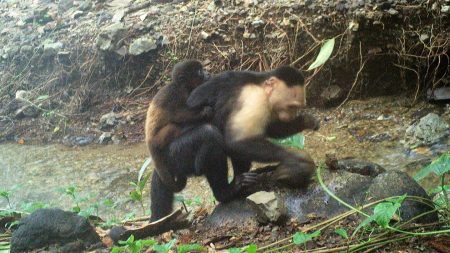Two years after the landmark biodiversity agreement, countries are set to convene at the United Nations Biodiversity Conference, COP16, to assess their progress in preserving Earth’s flora and fauna. The agreement, signed by 196 nations, aims to protect 30% of terrestrial and marine areas by 2030—an ambition colloquially referred to as “30 by 30.” The need for action is urgent, as current protection measures stand at only 17% for land and 10% for marine environments, with little change observed since the agreement’s inception. As countries prepare to report on their initiatives and progress towards this objective in Cali, Colombia, discussions will also focus on securing the financial resources needed to protect biodiversity—estimated to require hundreds of billions by 2030.
Despite the urgency of the situation, many governments have faced challenges in submitting national plans that fulfill the 30 by 30 commitments. As of the recent week leading up to the conference, only about 46% of the countries had presented their targets, with even fewer—less than 15%—having laid out actionable plans. Major players, including Australia, India, and Brazil, have yet to submit their submissions, which raises concerns about the feasibility of the collective environmental goals. The United States, while not a signatory to the agreement, has pledged to protect a third of its land and waters by 2030. Canada’s proactive stance, which includes an investment of $800 million into Indigenous-led conservation projects, offers a hopeful glimpse of what proactive measures could look like.
Conservationists have expressed dissatisfaction with the lagging efforts of many nations to articulate their biodiversity ambitions and actionable steps. Bernadette Fischler Hooper from WWF International cited the commitments thus far as “disappointing,” emphasizing that many government plans lack essential funding and strategies vital for curbing biodiversity loss. A significant fraction of the 91 countries that have proposed targets aim to protect 30% of terrestrial areas, while many others are working toward partial coverage for marine environments. As governments face intricacies requiring collaboration among various sectors, it has become evident that developing comprehensive and actionable plans takes considerable time—making the urgency of the situation even more pressing.
The funding needed to meet biodiversity goals presents a contentious aspect of the upcoming conference discussions. Developing nations have advocated for the establishment of financial commitments reaching $200 billion annually by 2030 to fund targeted biodiversity projects. Wealthier nations have pledged $20 billion to support developing countries, with aims to increase this to $30 billion by 2030. However, evaluations suggest that the world is still lagging, falling short of this funding goal by 23%. Advocate and Wildlife Conservation Society vice president Susan Lieberman emphasized that while some nations are genuinely pursuing conservation efforts, others have hesitations rooted in uncertainties about financing.
Amid the overarching commitment to protecting biodiversity, the conference will explore supplementary goals, including the imperative to halt human-induced species extinctions and enhance the populations of native species over the coming decades. However, critics argue that many of these targets are vague, lacking the specificity required for effective implementation. Stuart Pimm, an ecologist, articulated that quantifiable action plans are necessary to halt species extinctions, which remains insufficiently addressed in current proposals. As the conference unfolds, conversing about clarifying these targets will be crucial to guiding practical steps for biodiversity conservation.
The interconnection between biodiversity and broader global themes, such as climate change and public health, will also feature prominently in COP16 discussions. Countries will explore biodiversity’s essential role in achieving climate-related goals and preventing potential pandemics. Additionally, a global mechanism aimed at fairly distributing the benefits derived from digital genetic material will be contemplated to ensure equitable sharing of profits from the commercialization of such resources. The interplay of these discussions underscores the critical role biodiversity plays not only in ecosystem health but in human welfare and global stability. The COP16 conference thus presents an invaluable opportunity for countries to reassess commitments and take definitive steps towards a sustainable future for Earth’s ecosystems.










